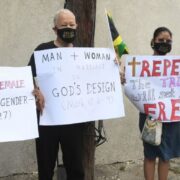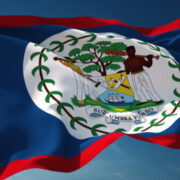The Future of Sports Betting in Latin America
Black Immigrant Daily News
News Americas, NEW YORK, NY, Mon. April 3, 2023: In the big scheme of things, Latin American countries represent a massive market for the online sports betting industry to tap into. For starters, millions of people that live in these regions are rabid sports fans. While mainstream sports like football, basketball, and baseball attract the most attention, Latin American nations also enjoy a vast array of small-market sports such as volleyball, polo, and field hockey.
It helps that internet penetration has increased with about 70% of people in these regions now having access to online casinos, sports betting sites, and new horse racing sites UK and LatAm experts recommend. Perhaps the most major concern is the lack of regulation. However, this problem is being addressed in many regions.
Which Latin American Countries Have Embraced Regulating Sports Betting?
Colombia was among the first South American countries to modernize gambling laws. A 2015 partnership between the government and the state monopoly Coljuegos resulted in online betting companies being allowed to offer their services to Colombians. Of course, operators must pay a 16% tax on their gross earnings which helps finance the nation’s healthcare system. To nobody’s surprise, business is booming. As an aside, Peru appears to be close to doing the same type of thing although the current political situation is slowing progress.
Quite possibly the most successful Latin American sports betting model is the one introduced in Argentina in 2018 and implemented in 2021. They seem to be following the same type of strategy that has been so successful in regions like the United States. Rather than being regulated by the national government, the country’s 23 provincial governments along with the city of Buenos Aries regulate gambling in their respective realms. There are now about 125 registered gambling sites operating in the country.
Of course, we can’t forget about Costa Rica which has been “regulating”, and we use the term loosely, online gambling for decades. The diminutive nation is home to around 450 online gambling sites. However, Costa Ricans are still prohibited by law from participating in most forms of gambling online and on land.
Then there’s Brazil which has banned most forms of gambling since 1946. While they might be a little late to the dance, Brazil recently made a grand entrance by announcing that the country would allow online operators to open shop on its soil. This is quite a coup for online betting companies as they now have access to another 200 million people. It is expected that Brazil’s regulated sports betting market could have an annual worth of more than a billion dollars by 2025.
Other Latin American countries that either have regulated online sports betting or appear to be headed toward a regulatory environment include:
Uruguay
Venezuela
Peru
Panama
Nicaragua
Mexico
Chile
Where is Sports Betting in Latin America Headed?
One of the main driving forces behind regulated online sports betting is money. Pure and simple. Cash-strapped governments are always looking for ways to generate more money, and the online gambling industry is one of the lowest-hanging fruits. One only has to look at the United States which had some of the strictest anti-online gambling laws in the world until it suddenly and unexpectedly changed direction a few years ago. Those revenues are simply too hard to pass up even if online sports betting comes with certain downsides.
The future of legal online sports betting in Latin America is bright. With over 420 million people in South America alone, betting companies are licking their lips at the prospect of entering the market. As you have seen, many Latin American governments have already embraced those companies and the revenues that they bring with them. It’s a good bet to say that other Latin American countries will inevitably follow suit.
But it isn’t just the various governments that benefit from legal sports betting. We must also consider that regulated markets are much safer and fairer for Latin Americans who engage in sports betting. They know that regulated sites must adhere to high standards and operate with integrity. Bettors are far less likely to fall victim to scam sites that do dishonest things like refusing to pay players their winnings.
NewsAmericasNow.com







